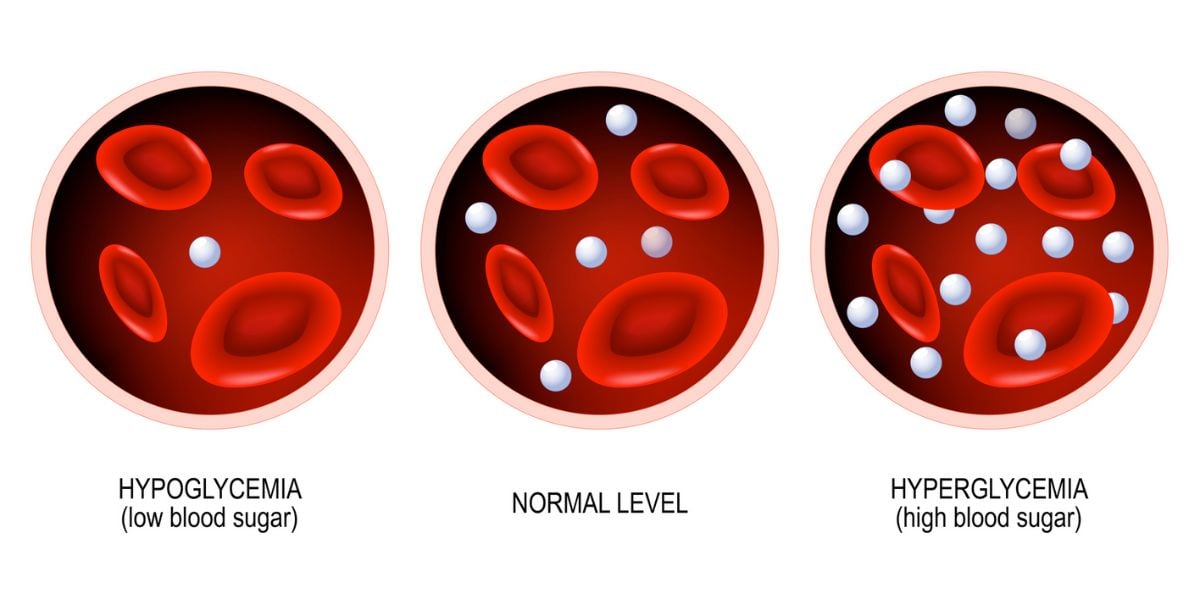There is no need for people with diabetes to give up alcohol simply because of their diabetes.
Although alcohol does have an effect on blood sugar levels, with a few precautions and careful management, people with diabetes can also enjoy a drink.
There are also alcohol substitutes for those who abstain.
In fact, diabetes alcohol guidelines are the same as for the general population.
- Read about alcohol’s effect on blood sugar
What are the recommended alcohol guidelines for people with diabetes?
The guidelines are two units for women and three units for men. However, it is worth being aware how many units a drink contains.
In some cases, a glass of wine will constitute two units, and a pint of beer can even reach three units.
How much alcohol do drinks usually contain?
If you have diabetes and are wondering how much alcohol you should drink, it is worth reading the following list to see how much alcohol is contained in each type of drink.
One unit (approximate measure) :
- 1/2 pint of standard strength beer, lager or cider
- 1 pub shot/optic/measure (50ml) of sherry or vermouth
- 1 pub shot/optic/measure of spirit (25 ml), eg gin, vodka or whisky.
So if I have diabetes I can drink as usual?
Not quite. People with diabetes need to be extra careful with alcohol.
Alcohol intake significantly increases the risk of hypoglycemia (low blood sugar levels). If your diabetes is already well under control, a moderate amount of alcohol may be fine either before, during or soon after a meal.
Even if you have a drink, this may not influence short-term blood glucose levels. However, there are some precautions to be taken care of.
What do I need to be careful of when it comes to diabetes and alcohol?
Avoid drinking on an empty stomach, as this will quickly increase the amount of alcohol in your bloodstream. Also avoid binge-drinking or sustained drinking, and never substitute alcohol for your meals. All of this can increase the risk of hypoglycaemia.
How will alcohol affect my blood sugar control?
Different alcoholic drinks will have varying effects on your blood sugar It also depends how much you drink. A single alcoholic drink (a 330ml bottle of beer, medium glass of wine) may not have a huge effect on your overall blood sugar.
If you have more than a single drink, most alcoholic drinks will tend to initially raise your blood sugar.
Typically beers, lagers, wines, sherries and liqueurs will have this effect. However, alcohol inhibits the liver from turning proteins into glucose which means you’re at a greater risk of hypoglycemia once your blood sugars start to come down. If you have a number of these drinks, you can expect to see a rise in blood sugar followed by a steady drop a number of hours later, often whilst asleep. People who take insulin, in particular, therefore need to be wary of hypoglycemia.
Each person will have a slightly different reaction to alcoholic drinks so it’s well worth using blood tests to check how your body responds to it.
Is drinking alcohol with diabetes dangerous?
Drinking lots of alcohol is dangerous for anyone. However, with larger amounts of alcohol, serious hypoglycaemia can occur.
Some sources (including Diabetes UK ) advise strict carbohydrate management, perhaps even chips or pizza, if a large amount of alcohol has been consumed.
However, avoiding alcohol in large quantities is the best recourse.
Will I have a hypo whilst drunk?
The symptoms of drunkenness can be very similar to a hypo, which can lead to very dangerous confusion.
Furthermore, if you have been drinking heavily, there may be a risk of hypos for up to 16 hours (or even more) after you have stopped drinking.
Monitoring blood glucose levels closely is an essential part of managing your diabetes in this situation.
What other dangers does alcohol pose for people with diabetes?
Drinking alcohol in high quantities regularly can cause an increase in blood pressure. Furthermore, alcoholic drinks contain calories, and therefore can lead to weight gain. Drinking alcohol can exacerbate neuropathy by increasing pain and numbness.
Low carbohydrate and low-alcohol drinks may be better than standard alcohol, but the dangers still need to be considered. Often alcohol is mixed with fizzy, sugary drinks that can impact on blood sugars.
So should I drink or not?
Drinking moderately in accord with the recommended guidelines, should definitely not be ruled out. Some alcohol, red wine in particular, may even offer health benefits, not that that means you should take up drinking.
- Healthy eating, low alcohol intake and reduced sun exposure can combat cancer, evidence suggests
- Just one alcoholic drink can increase risk of heart rhythm condition, study shows
- Experts call for ‘vague’ health warnings on alcohol to be updated
- Daily beer and wine intake beneficial for middle-aged adults, study reveals
Cost of drinking
Calculate the cost of drinking below or visit our Cost of Drinking Calculator for more information.




